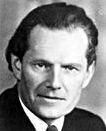 |
||||||||||||||||||||||||||||
|
|
||||||||||||||||||||||||||||
|
|
|
|
Hitler spoke and wrote a great deal, but not much on his personal beliefs about the human soul. He was knowledgeable enough about religions, professed to be doing all his works for God and in God. His pronouncements about God were mostly propaganda, he did not theorize or self-inspect much that we know of. There was a seething hate, but it was controlled by his stated goals, which were in the open for all to see. We know that Hitler was against all organized religion to the extent that he could not control them, but he was well aware of the benefits of manipulating the faiths as long as they would serve his ends and submit. He maintained Christian regiments and Muslim regiments, even homosexual forces, under hotly dedicated commanders, and all this was rather convenient. He did not of course gather Jewish regiments, but he used those groups just as directly whenever the purpose suited. For him, the faiths were interest groups to pit against one another, preferably to wipe each other out leaving only the pure Aryan culture in place. Darwinian survival of the fittest in a diabolically pure form. Calmeyer was not a practicing Protestant, his mother and father were however known to be Catholic, with public personae reflecting a moral and legal status becoming a regional justice of that Supreme Court. But Hans Calmeyer was clearly a practicing respecter of God, would mention God regularly (to be seen in some of these pages), feared God in the sense that he wanted his own life to be GOD-PLEASING in very tangible ways. Calmeyer had a strong sense and knowledge of all the concepts of eternal life, and he did not fear his own death as a result. It is that lack of fear of death on this earth that enables us to risk death and have the courage to suffer for our righteous actions. When I met with him for his last 3 hours just before he died, he was clearly ready to die, not morbid or morose or even regretful. His last statement was very clear: he felt complete, his joy was in seeing his son after all those years and for one last time, a statement and serenity that I did not comprehend until much later, and even perhaps not until now, as I write of this Calmeyer legacy. He was expectant of eternal life. The religions are UNITED in one thing and maybe one thing only: the conviction that the life of the soul is eternal. Religions are not even all decided that there is a God, though they generally conclude that there is an intelligence behind the order of the universe that is so much greater than we are that God is unfathomable, but exists. What members of the religions do, what morals they share, what rituals they observe, these are all variable, and not even particularly consistent within each religion, except the most regimented of creeds. Can we do something positive with this seemingly unified belief? On this earth, apparently not, human behavior and non-love for one another always seem to intervene negatively. And once we are dead, we do not know and ultimately do not care about our shared visions for eternity. We know that life on earth is ephemeral, we want to properly prepare our eternal lives to maximize that much more permanent existence, so it boils back down to proper behavior while we are still here. And our God, or in the case of Spiritualists some natural form of holy spirit, lets us know through our scriptures and experiences what our proper behavior ought to be. And there is hope that positive results will come from al that. A great diivision comes in our belief in eternity: will our eternity be good or bad, based on our behavior? Or will our eternal souls simply transcend desires and fears of heaven or hell? We are all fundamentally free to accept or reject the creeds around us. No you say, reality is different than freedom: organized religions will impose themselves, annoyingly through proselytization, tyranically through forced conversion, slyly through psychological manipulation, and so forth, rendering even well-meaning religions evil in some way and negating our free will. But our free will is there nevertheless, the freedom simply faces greater or lesser obstacles. It is our belief in a power of life, both on earth and beyond, which ultimately motivates our free will to RESIST tyranny and promote the value of life and the values of life among our fellow human beings. Just because there are obstacles does not mean we are not free. Our freedom is in our thoughts. Atheists also believe. Just differently. Fervently nevertheless. Perhaps they refuse to believe in eternity, some however have such a concept. It is our freedom of thought that unites us in our longing for eternal life, eternal thought. It is our freedom to act that often divides us, because our beliefs vary. |
 |
||||||||||
|
|
||||||||||
